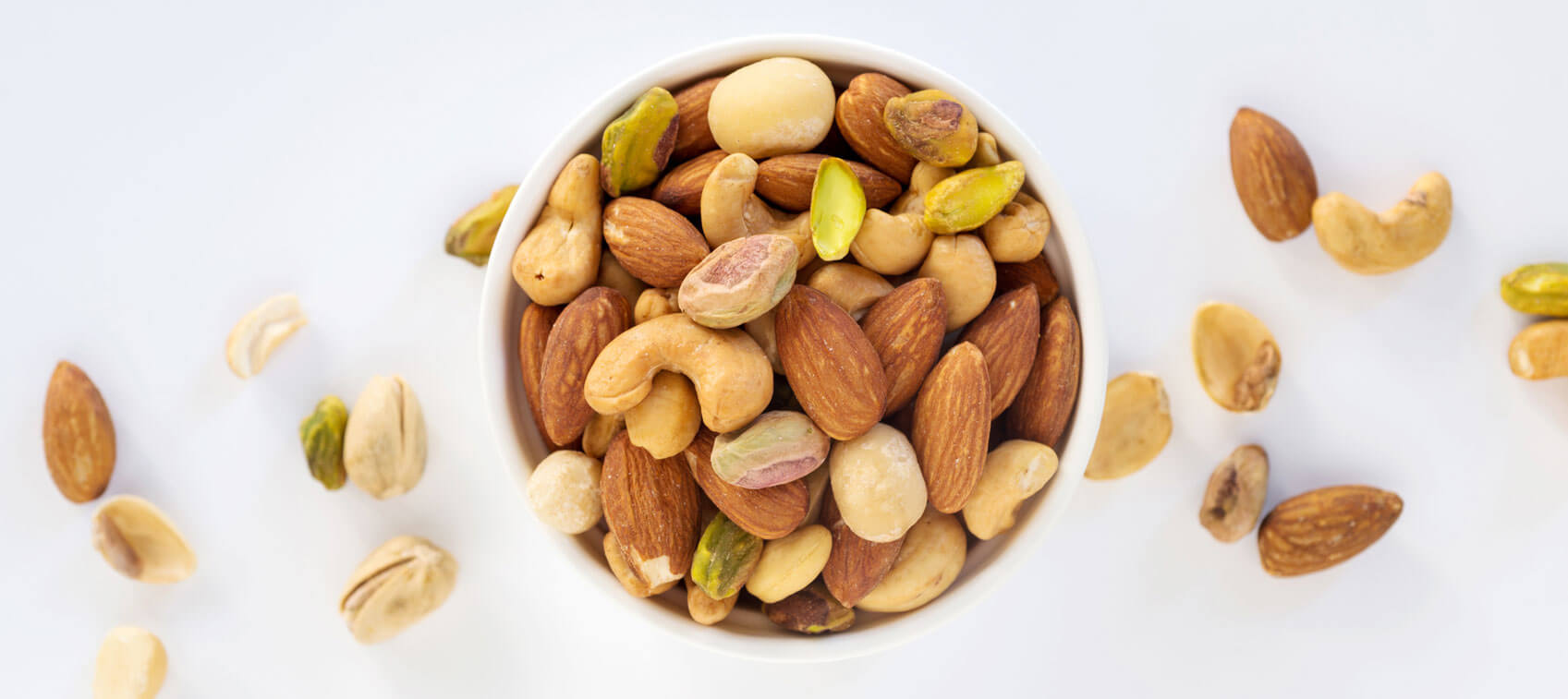
There are many foods you could add to your diet to enhance your overall health and well-being. You'll see some significant improvements in your health over time if you incorporate even a few of the following five into your regular routine.
Flaxseed
Flaxseed is a wonderful vegetarian source of omega-3 fatty acids, and is the richest food source of a substance called lignans—compounds that give flax its cancer-fighting ability. Once ingested, plant lignans can be converted by your intestinal bacteria into mammalian lignans, which have a chemical structure that blocks estrogen activity. Soy and the anticancer drug tamoxifen work in much the same way.
Flaxseed can make other contributions to your health. It's beneficial in the treatment of high blood pressure, elevated cholesterol and triglycerides, and atherosclerosis (clogging of the arteries). Flaxseed has also been one of the premier constipation treatments for centuries.
Whole flaxseeds are inexpensive, and grinding them is the best way to enjoy all the benefits of flax because if the seeds aren't crushed, ground, or broken, they will pass straight through your system intact. Grind the seeds just prior to using them. Finally, because of flaxseeds' gum-like quality, be sure to drink plenty of water.
Raw Nuts
Nuts are one of nature’s best-kept secrets. Research has shown over and over that simply by eating nuts, you can improve your cholesterol and triglyceride levels, significantly reduce your risk of heart disease, and lose weight. Many of their benefits come from their rich essential fatty acid (EFA) content, particularly the omega-6 fatty acids and the omega-9 monounsaturated fatty acids.
Another benefit of whole nuts is that they release oils in a way that makes them behave differently than oils that have been extracted. When whole nuts are consumed, the oil from the nut enters the bloodstream more slowly, peaks about an hour later, and is rapidly flushed out of the bloodstream. This beneficial characteristic is important, because the longer digested fat circulates in the bloodstream, the greater the risk of developing heart disease. Nuts are like "time release" pills of beneficial fatty acids, which helps explain how adding nuts to your regular diet can help lower cholesterol levels.
Nuts are also one of the best sources for natural vitamin E, and a relatively good source for minerals like magnesium and potassium. They also contain the amino acid arginine, which the body uses to make nitric oxide. Nitric oxide improves blood flow to the heart muscle in times of low oxygen levels and also acts as a powerful antioxidant.
Stock up on healthy raw nuts like walnuts, pecans, almonds, hazelnuts, and Brazil nuts. To obtain good results, you need roughly 3 ounces of nuts a day—though less can still be helpful. A handful weighs roughly 1 ounce. Make sure you are also getting adequate amounts of omega-3 in the form of fresh-ground flaxseed or fish oil each day to counterbalance the omega-6 fats in the nuts. The ideal balance of omega-6s to omega-3s is around 3:1 or 4:1.
Sulfur-Containing Foods
Sulfur has strong antimicrobial and antioxidant properties. Winemakers use it to selectively rid wines of certain bacteria, and at the turn of the 20th century, mothers used a little sulfur and molasses each spring as the standard tonic. It was also used as a laxative, and as a remedy for a long list of health problems. But with the arrival of prescription medications, the use of plain elemental sulfur for human complaints took a back seat.
Your body requires 850 mg of sulfur each day for normal activities. Most of the intake comes from the amino acids cysteine, cystine, taurine, and methionine. L-cysteine is a very effective antioxidant, and like taurine and methionine, much of its strength appears to be related to its sulfur content.
Egg yolks are probably one of the best food sources of sulfur. Two whole eggs a day will provide enough sulfur for your body's needs.
Green Tea
Green tea leaves are processed with either steam or dry heat, and are not allowed to ferment. Black tea, on the other hand, undergoes fermentation to strengthen its flavor. Fermentation destroys practically all of the epigallocatechin gallate (EGCG), the substance in green tea that gives it so many of its health benefits.
EGCG has insulin-enhancing properties—and the more efficient insulin is, the less your pancreas has to produce. EGCG also has anticancer and fat-burning properties. Studies have shown that green tea can help treat and prevent a number of health conditions, including acne, prostate enlargement, reproductive and other various cancers, and osteoarthritis. Drinking green tea has also been found to boost your immune system so it is better prepared to fight off infections.
By the way, don't add milk, non-dairy creamer, or soy milk to your tea, because they lessen the insulin-enhancing effect of EGCG. Lemon juice is okay.
Oils & Fats
Olive oil is your best bet for marinades and salad dressings. To ensure that the olive oil you use is of top quality, check the label to make sure it is certified organic extra virgin olive oil. Olive oil contains the monounsaturated fat oleic acid. Studies have shown it actually lowers blood cholesterol levels. Flaxseed oil can also be used for salads. Flaxseed oil is one of the omega-3 type oils and is considered to be a super-unsaturated fat; therefore, if not used readily, it has a tendency to break down and become rancid. I recommend disposing of the oil if not used within three months.
If you're frying, use butter. Being a saturated fat, butter is less affected by heat, air, and light. As a result, it doesn't break down as quickly and become toxic.
If you’re still the hard-headed type who wants to deep fry something, then special high-oleic safflower oil would probably be the best choice. Add either onions or fresh garlic cloves to the oil while it is being heated to the proper temperature and occasionally throughout the cooking period. These have been shown to work as antioxidants and help retard the breakdown of the oil.


